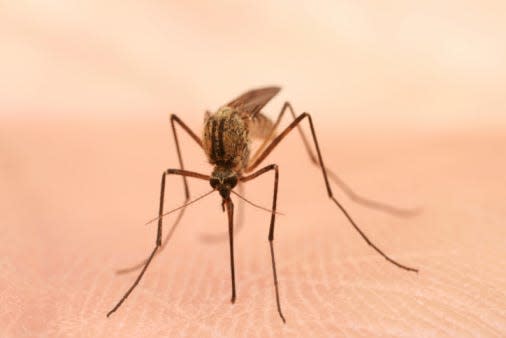Delaware reports first human cases of West Nile virus in 2023. How to stay safe

Delaware on Wednesday recorded its first human cases of West Nile virus this year, according to the Department of Health and Social Services. Three cases were detected in New Castle County in men over the age of 50. The men have all been hospitalized with symptoms.
West Nile virus is transmitted by mosquitos and can cause West Nile fever in about 1 in 5 people.
Symptoms of West Nile virus
Symptoms of West Nile fever include a high temperature, head and body aches, swollen lymph nodes and rashes on one’s back or chest, DHSS said.
More: Want to know how to get rid of mosquito bites? Here is our treatment, prevention guide
About 1 in 150 people will develop a severe form of the fever, with additional symptoms including a stiff neck, tremors and muscle weakness. The illness can lead to paralysis, comas, convulsions and possibly death.
Experts say the older adults and immunocompromised people are most at risk for severe illness, and anyone experiencing these symptoms should seek immediate medical help.
More: Bed bug season is here. How to identify risks and avoid an infestation
The Division of Public Health and the Delaware Department of Natural Resources and Environmental Control said they will increase mosquito population surveillance efforts near the three infected men’s homes. DNREC's Mosquito Control Section may also conduct local control operations to try and prevent further virus transmissions to people, according to DHSS.
Officials said the three human cases coincide with a rise in West Nile virus transmission in chickens monitored by DNREC. This rise is normal for the time of year, as West Nile virus cases typically peak between mid-August and mid-September.

Ways to prevent West Nile virus and other mosquito-borne illnesses
Apply bug spray, especially ones containing DEET or Picaridin
Wear light-colored clothes, long sleeves and pants outside
Avoid using perfume and cologne
Reduce outdoor activities that can cause heavy breathing or sweating
Get rid of any unnecessary standing water that is outside for more than four days and could serve as a mosquito breeding ground
Report suspected human cases of West Nile virus to DPH’s Office of Infectious Disease Epidemiology at 888-295-5156
This article originally appeared on Delaware News Journal: West Nile virus detected in Delaware; 3 hospitalized. How to stay safe

